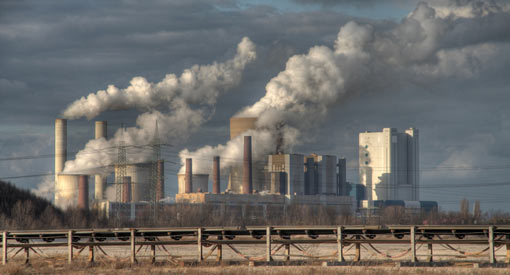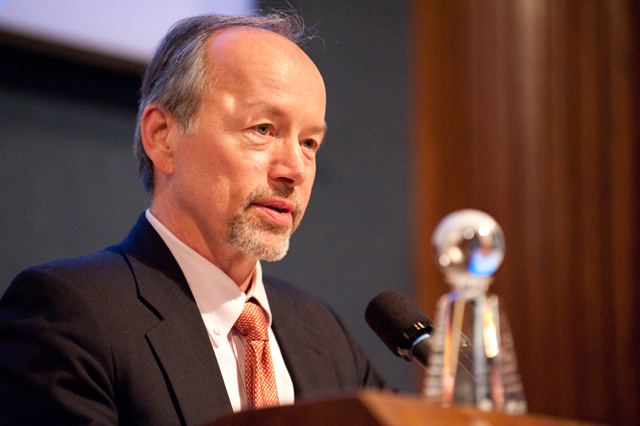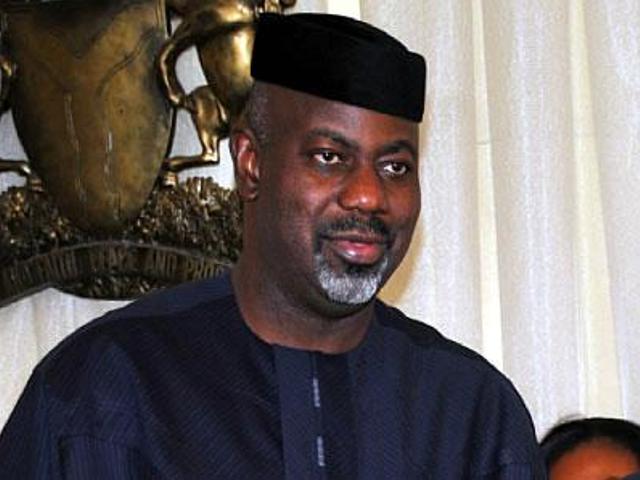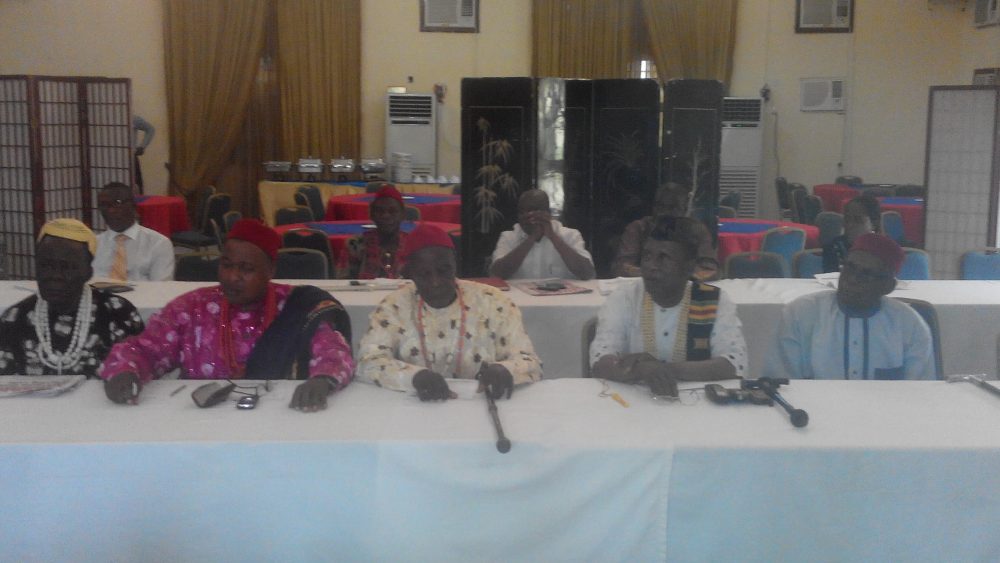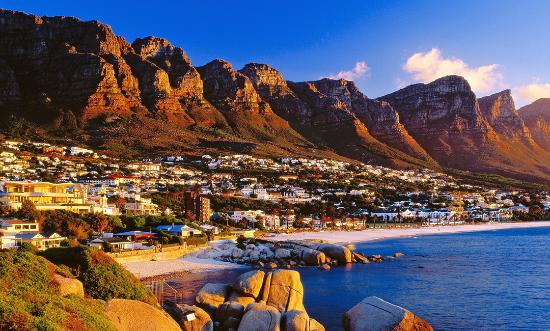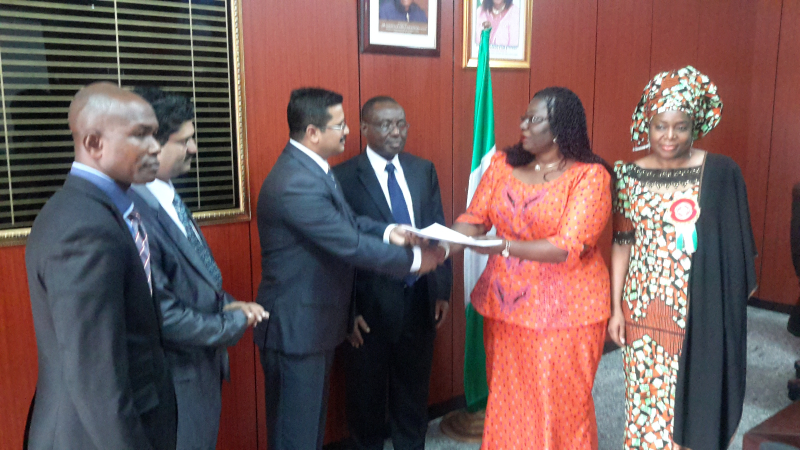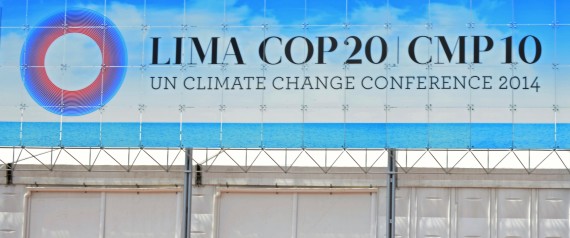I
Climate concerns rise amid growing global coal consumption
Global coal consumption rose three percent from 2012 to 2013, reaching over 3,800 million tons of oil equivalent (mtoe) in 2013. While the pace of growth is down from 7.1 percent in 2010, the continued increase in coal consumption and related carbon emissions is a cause for substantial concern among climate scientists. If this trend continues, attempts to keep global warming below 2 degrees Celsius will likely fail, writes Christoph von Friedeburg, a research fellow at the Worldwatch Institute.

Looking at recent developments by region, energy-hungry emerging economies, such as China and India, have been driving the expansion in coal use since the beginning of this century. In contrast, coal consumption in the United States and the European Union (EU) is declining. These countries have been replacing part of their coal consumption with natural gas and renewable energy, although China is taking steps in the same direction.
Coal demand in China has almost tripled since 2000, rising from 683.5 mtoe to 1,933.1 mtoe in 2013-more than half of the global figure. To meet coal demand, the nation so far has been relying on its domestic production. But analysts doubt that this is sustainable for another decade or longer. As imported coal has become competitive, China’s imports have outweighed its exports since 2009.
To diversify its energy sources, the Chinese government increased its capacity, investments, and exports in renewable energy technology, making the nation a new world leader in renewable energy. Furthermore, China is looking into increased imports and domestic extraction of natural gas, all while reducing the nation´s energy intensity.
In the United States, coal consumption has been in retreat since the start of the domestic shale gas boom. These trends could change in coming years if, as some analysts predict, many of the wells for hydraulic fracturing run dry and natural gas prices rise again, or if substantial exports of liquefied natural gas begin.
Coal consumption in the EU has been on a marked downward trend since 1990.This trend is mostly attributable to the EU´s flat overall energy consumption since 1990 and to coal’s falling share in EU primary energy consumption. Policies and financial incentives that raised the share provided by renewables contribute to this shift.
The coal supply is getting “dirtier” as strong demand and lower prices create markets for coal with lower energy content. In 2012, for instance, the average heat content of coal produced in the United States was about 23.4 megajoules per kilogram (MJ/kg), down from 29.17 MJ/kg in 2005. This means that more and more coal needs to be burned to generate the same amount of heat for a desired electricity output.
If coal consumption continues to increase and no meaningful binding multilateral agreements on climate change are made, attempts to combat global climate change will likely fail. One source of hope is that the combination of decreasing energy intensity and declining costs of renewables will cause coal´s share to keep shrinking and stop the global rise in the use of the dirtiest energy source.
Malawi commits to sufficient, long-term water supply
President of Malawi, Peter Mutharika, has said that his government is geared at not only solving the water challenges in Blantyre for now, but set the Blantyre Water Board (BWB) to ably supply sufficient water for the population of year 2040.

Mutharika said this recently during the national address to the public, which was broadcast on public radio and television channels. In his 15-page document, the President said: “My fellow Malawians, I am very aware of the water challenges in Blantyre, and I assure everyone that government is determined to supply sufficient water to all residents.”
He said Blantyre Water Board’s infrastructure is aged and has out-lived its design capacity which was meant for a population of 500 000 residents up to the year 1999.
“Today BWB has over 1 million customers. Further, due to inadequate rains in the year 2012/13, the Mudi Dam which produces about 10 percent of the Board’s water production dried up by October 2014. Thirdly, electricity, which costs BWB about K270 million per month to pump water from Nkula, 40 kilometers away from the City has been another challenge,” said Mutharika.
According to Mutharika, his government embarked on a total rehabilitation of the Blantyre Water Board production facilities and replacement of pumps at Walkers Ferry and Chileka Pumping Stations, and by March 2015, the board will be able to meet all the demand of 96 000 cubic meters per day, up from the current 74 000 cubic meters production capacity.
“In addition, we will construct a water supply system from Mulanje Mountain at a cost of about $15 million, to provide an extra 8 000 cubic meters of water per day to Blantyre and surrounding areas.
By George Mhango (Water Journalists – Africa) in Blantyre, Malawi
Improving access to family planning for climate-compatibility
Policymakers and others working to slow human-caused climate change and make societies more resilient to its impacts should consider potential contributions to that effort from expanded access to family planning, a group of experts recommends.
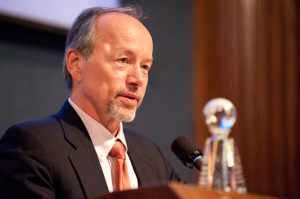
The first step is simply to open dialogues on possible connections between climate change and family planning, and the right of individuals and the services they need to decide for themselves the timing and frequency of childbearing, said the experts. The group, which explored the linkage of population dynamics and family planning to climate compatible development, was convened by Population Reference Bureau and the Worldwatch Institute. Members came from fields related both to climate change and reproductive health.
“This is a clear statement from a diverse group of climate and reproductive health experts, women and men from developing as well as developed countries,” said Robert Engelman, Senior Fellow and former President of the Worldwatch Institute. “The group strongly recommends expanding access to family planning, with one of its many benefits being that it helps support development that is compatible with a sustainable climate.”
Over the last 100 years, the world’s population has grown from around one billion people to more than seven billion people. Human activity has transformed vast areas of the Earth’s surface, altered the atmosphere, and resulted in thousands of plant and animal species extinctions. Achieving universal access to family planning throughout the world would result in fewer unintended pregnancies, improve the health and well-being of women and their families, and slow population growth-all benefits to climate compatible development.
Population and family planning have rarely been linked with climate compatible development in climate policy discussions. Research has demonstrated, however, that helping women in all countries achieve their own aspirations for planning pregnancies and family size would put the world on a path to slower population growth. This would ultimately lead to substantial reductions in future carbon dioxide emissions.
Connections within family planning-climate change connections are presented from a woman-centered and rights-based approach. When safe and effective family planning services are available to all, experience shows that average family size falls, pregnancies occur at more optimal times in women’s lives, and mothers and children are healthier and more able to contribute to their countries’ development-and are more resilient to rapid change.
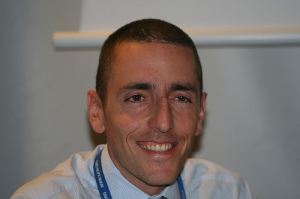
“Family planning can be a sensitive topic, especially when linked to climate change or the environment generally,” Engelman said. “These experts are saying it’s okay to talk about, okay to support, so long as we insist that its availability is rooted in human rights and the free reproductive decisions of individual women and couples. There are many steps needed to advance climate compatible development, such as addressing unequal greenhouse gas emissions and vulnerability to climate change impacts. One of these important steps is to make sure that individuals and couples can choose safe and effective contraception to have the pregnancies they want and to avoid those they do not.”
“The work of this group of population, climate, family planning, and development experts illustrates that you can have a positive, women centred dialogue on these connections,” adds Jason Bremner, Associate Vice President at the Population Reference Bureau. “This positive conversation and the establishment of a common set of guiding principles were critical in arriving at the consensus statement and will help others interested in making these connections avoid past missteps. The action opportunities developed by this group chart a path forward for researchers, advocates, and policymakers. These actions could ensure that improved access to family planning figures among the efforts to address climate change and its impacts.”
Linking population, reproductive health, and climate change is unconventional for many policymakers. Cross-sectoral alliances and initiatives that highlight and integrate potential synergies in development plans and in climate finance programs could reap enormous benefits, especially over time, for individuals and societies as we tackle climate change.
2015: Politicians urged to mainstream sanitation into campaigns
WaterAid Nigeria wants political parties and their candidates to mainstream water, sanitation, and hygiene (WASH) issues into political campaigns, as the country prepares to hold the 2015 general elections.

Towards achieving this, the UK charity in collaboration with several civil society partners including YouthWASH Nigeria and Water and Sanitation Media Network is mobilising the general public to demand political parties and aspirants to proffer solutions to Nigeria’s water and sanitation crisis in their manifestos. About 63 million people are believed to without access to safe drinking water, while about 39 million are still defecating in the open, according to WaterAid.
Speaking in Abuja last week during a workshop to sensitise journalists, bloggers and WASH activists on the ‘Vote4WASH’ campaign, Saheed Mustapha, Advocacy and Partnership Manager, WaterAid Nigeria, called on voters to demand solutions to water and sanitation issues from political aspirants for local, state, and federal positions, saying: “Water is a developmental issues such as education, basic healthcare, and economic delivery, as such it should be in the forefront of national political discourse.”
National Coordinator of YouthWASH, Nature Obiakor, said Nigerians youths through the Vote4WASH campaign will engage with political aspirants and hold them accountable should they fail to redeem their WASH pledges, after being sworn in. “Vote4WASH campaign will not end at the conclusion of the 2015 general elections, it continues after election, because we would demand that elected public offices deliver their WASH promises,” he said.
Cross River engages stakeholders in REDD+ programme
Governor of Cross River State, Senator Liyel Imoke, has said that the United Nations-promoted Reducing Emissions from Deforestation and Forest Degradation (UN-REDD+) programme being implemented in the state as a pilot area is positively impacting the citizenry in the area of forest management.
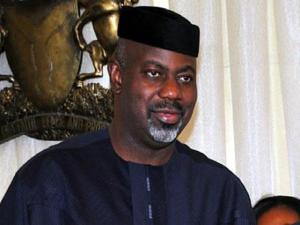
Imoke, who made the disclosure on Friday in Calabar, the state capital, during the programme’s Stakeholder Engagement Forum, stated that this comes against the backdrop of the desire to continue to explore every opportunity to build on existing structures and processes.
He said: “Today, we see REDD+ beginning to have impacts in our state. Though still at the REDD+ Readiness Phase, there is already strong evidence of positive behaviour change towards the management of our forests, and coordination of all stakeholders to invest in meaningful initiatives that will benefit first our forest dependent communities, and everyone else.
“We are happy to note the advancement in REDD+ implementation in Cross River State. As stakeholders become more informed and involved in the process, we as government are waiting to receive feedback that will influence policies and processes based on evidence and with the intent on preserving our culture and wellbeing. We in Cross River State have recognised that the responsibility lies on us all to join hands and preserve our heritage and our future. We owe this to ourselves, to our children now and future generations, and the global community. With God on our side, we will succeed.”
He inaugurated the REDD+ Stakeholder Forum, comprising six stakeholder groups including forest dependent communities, government bodies, media, academia, civil society and the private sector. It will coordinate actions and responses in order to create harmony in forest governance processes.
National Coordinator, Nigeria UN-REDD+ Programme, Salisu Dahiru, who disclosed that the country has been opportuned to join the World Bank’s FCPF REDD+ family, declared that lessons from Cross River’s Stakeholder Engagement are critical.
“Nigeria’s REDD+ programme is a realistic one, not too ambitious, and designed to suit our federal structure. We are encouraged that the two-track approach of Nigeria is succeeding; we look forward to a positive scaling up of the REDD+ programme to two additional states and the entire country,” he added.
Chairman Cross River Forestry Commission (CRSFC), Odigha Odigha, said of the forum: “We are trying to establish ownership of the entire programme and the ownership should start from a process that we all designed and took part in. This is talking about establishing a community-based REDD+ platform where decisions will be taken by the committee and essentially talking about providing alternative livelihood.
“We are complying with the basic element of good governance, participatory behavior, accountability, transparency and equity. The stakeholders are truly contributing – they are not influenced into forming an opinion.”
Board member, CRSFC, Arikpo Arikpo, expressed hope that besides financial support to improve community forestry activities that have historically been constrained by limited resources, REDD+ would bring non-financial benefits including improvements in institutional capacity and human capital.
“It is hoped that better monitoring of resource extraction and greater enforcement of rules may result in improved forest carbon and livelihood outcomes. For REDD+ as a forest-based climate change mitigation strategy to succeed, it is expected that the funding for programmes would be timely, and implementation participatory,” he submitted.
Tony Atah (UN-REDD+ Stakeholder Engagement Specialist) and Ruth Akagu (South East Regional Coordinator of the Nigerian Conservation Foundation), stressed that besides the inauguration of the Stakeholder Forum, the programme would likewise implement Community Based REDD+, commence FPIC (Free, Prior and Informed Consent), develop REDD+ implementation strategy, mainstream gender strategy, and develop appropriate policies and legal instruments.
They added: “If change in climate and loss of biodiversity had no meaningful impact on humanity, nobody would care. REDD+ therefore is all about the people – promoting people-centred and people-driven development through improved natural resource management.”
After deliberations, participants underlined the need for Community Based REDD+ (CBR+) to address the issue of poverty in forest dependent communities. According to them, REDD+, through CBR+, should support communities to raise fund for community level projects through advocacies in international events.
“While youth education and capacity building to be encouraged to reduce pressure on forest, biodiversity management initiatives should include watershed management. Capacity building for rule enforcement in forest dependent communities will ensure compliance and improved forest governance,” they added.
The newly inaugurated Stakeholders Forum will, besides liaising between REDD+ and all stakeholders, ensure that the voices of communities are well documented and integrated into relevant policies.
The Forum will also: contribute into work plans and periodic progress review of REDD+; develop data base of stakeholders e.g. phone numbers to facilitate effective dissemination of information among forest dependent communities and other stakeholders; and participate in the production and dissemination of knowledge products for effective information dissemination.
Essentially, it will: create awareness; build capacity; implement CBR+ especially livelihoods component; train the media training; organise knowledge sharing meetings and strengthening the forum by holding quarterly and bi-annual meeting.
Under the Forum, the forest dependent communities are Mbe/Afi Cluster (Boki LGC), Iko/Esai Cluster (Akamkpa, Yakurr, Obubra and Etung LGCs) and Mangrove Cluster (Akpabuyo, Calabar South, Calabar Municipality, Bakassi and Odukpani LGCs).
Government bodies will have representatives from: CRSFC, Ministry of Agriculture, Ministry of Environment, State Planning Commission, Department of International Development Cooperation, Department of Tourism Development, Department of Investment Promotion, Ministry of Justice, Ministry of Lands, Ministry of Women Affairs and CRS House of Assembly.
Others include: civil society organisations (3), media (2), academia (Forestry & Wildlife Department, University of Calabar; Department of Geography & Environmental Sciences, University of Calabar; Faculty of Agriculture, Cross River University of Technology).
Private sector players are: Dansa, banks (Ecobank, Zenith Bank), Timber Association, Wilmar, OKIP, Unicem and Flour Mill Plc.
Calabar UN-REDD+ stakeholder forum in photos
Six broad stakeholder groups including forest dependent communities; government ministries, departments and agencies (GMDAs); media; academia; civil society organisations; and private sector players gathered for three days last week in Calabar, Cross River State (CRS), courtesy of the United Nations collaborative mechanism on Reducing Emissions from Deforestation and Forest Degradation (UN-REDD+) Programme.
The REDD+ Readiness Programme in Nigeria is being implemented in Cross River as pilot state. The Stakeholder Forum is regarded as the ultimate platform to coordinate stakeholders’ participation and contribution to the strategic direction of the REDD+ Programme implementation in state. The forum likewise validated the Participatory Governance Assessment Draft Report and the Community Based REDD+ Draft Country Plan.
Nigeria is executing the REDD+ Readiness programme under an innovative, two-track approach involving the Federal Government and CRS.
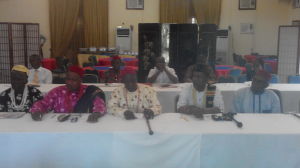
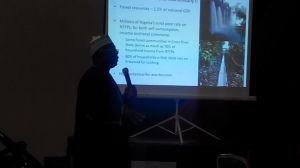
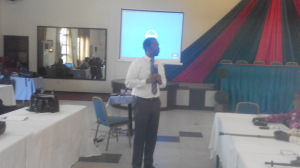
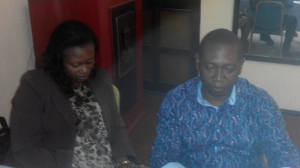
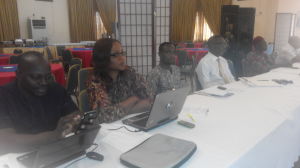
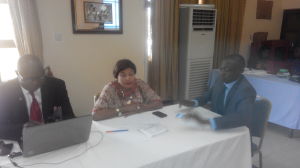
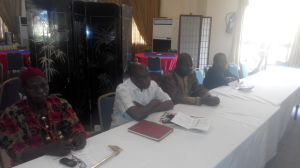
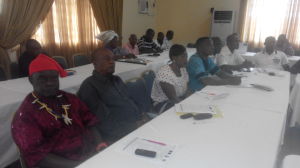
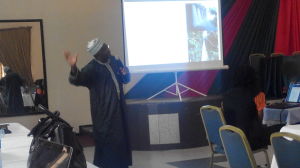
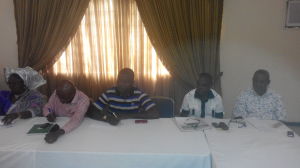
Researchers explore avenues to curb unsavoury Africa urbanisation
Following previous meetings held in Addis Ababa, Ethiopia in March 2013 and in Nairobi, Kenya in February 2014, the Africa Urban Research Institute (AURI) recently (November 2014) in Cape Town, South Africa convened a gathering with a thematic focus on “Urban research for reducing urban poverty” to plan for the future.

Organisers were of the belief that outcomes of the meeting could provide a basis to develop an informed and compelling research and advocacy agenda around African urbanisation and urban poverty reduction, targeting key events such as the 2015 Africities meeting and the 2016 Habitat III conference.
With financial support from the Mistra Urban Futures programme based at the African Centre for Cities, the third AURI workshop meeting was held on 20 November 2014, in Cape Town, South Africa. The meeting was intended to inform AURI members of the content of the Ford Foundation proposal and the work plan leading to the end of 2015. The workshop specifically addressed the following issues:
- The changing purpose, nature and focus of research on urban poverty.
- Available information sources and methods (including co-production) for researching and reducing urban poverty.
- Changes in how urban poverty is being (and will be) addressed in policy, especially in relation to the ongoing process to develop the SDGs.
- How African urban research centres and AURI can contribute to urban poverty reduction through policy research and advocacy.
Proceedings began with a welcome from Vanessa Watson of the African Centre for Cities (ACC), and introductions by the AURI representatives present.
ACC is part of an international network of cities (Gothenburg, Manchester, Shanghai, Kisumu and Cape Town) where efforts are underway to understand and direct urban sustainability better through innovative knowledge-sharing practices. The programme is funded and managed by Mistra Urban Futures (MUF) headquartered at Chalmers University in Gothenburg, Sweden.
In the opening presentation, James Duminy (ACC) updated partners on the activities of the AURI secretariat undertaken since February 2014. He outlined the objectives, content and work programme of the AURI proposal submitted to and approved by Ford Foundation in 2014. As part of the work programme, AURI will:
- Commission three expert think pieces as strategic resources
- Commission background urban reports for each Ford Foundation country office
- Conduct a series of in-country workshops in different AURI contexts to engage civil society, government and other partners
- Conduct an AURI workshop in 2015 to identify key issues for policy briefs
- Develop an online knowledge platform to promote sharing and dissemination of resources and information
- Host a policy conference at/in parallel to the Africities 2015 event
Ntombini Marrengane and Gordon Pirie (ACC) then presented on ACC’s Africa research programmes, describing how these projects have drawn upon co-production methodologies, and how they potentially link to the AURI agenda and work programme.
Adele Hosken, regional representative of Cities Alliance (CA), updated participants on the progress of the CA Africa Strategy, CA’s contributions to the SDG process, and CA’s research and programmatic agenda around urban poverty reduction. She emphasised the importance of networks such as AURI in enabling the alignment of actors and activities across different scales in order to drive system changes. She also reaffirmed that AURI remains an important strategic partner in relation to both the CA Africa Strategy and work of the CA Think Tank (to be established in 2015). CA has identified certain priority areas for their work in Africa (and Medium-Term Strategy more generally), and will be commissioning a series of discussion papers over the next year to give impetus and substantive content to the work in these areas. AURI is well placed to contribute to this process, and in particular could help to frame certain positions around informality, inclusive growth, resilience, and gender equality.
Owen Crankshaw (Department of Sociology, University of Cape Town) then presented some of his research on urban inequality, focusing on the patterns and causes of the changing class structure of South African cities and their implications for class and racial inequality (the polarisation/professionalisation debate), as well as the contemporary spatial order of cities and its implications for racial inequality (the spatial mismatch debate). His presentation provided a basis for participants to reflect upon contemporary trends in urban inequality in Africa more generally, and to sharpen their knowledge of methodologies for studying urban inequality patterns and drivers.
The discussions then switched to the topic key global policy debates, with a presentation by Susan Parnell (Department of Environmental and Geographical Science, University of Cape Town). She highlighted how the question of urban poverty is framed within global debates about cities, emphasising that what is said in global terms will be formative of how we conceptualise and operationalize ‘the urban’. Her presentation focused on the ongoing processes to develop the Sustainable Development Goals (SDGs) and the post-Habitat III development agenda, and their implications for cities. Points raised in discussions included:
- How can AURI help to ensure that the global development norms set out by the Habitat III agenda are implemented by African governments, and according to their original objectives?
- How should AURI seek to take and advocate positions in various debates, for example, surrounding the view of cities as ‘drivers’ or ‘sites’ of development? How should this position be framed in a way that doesn’t reproduce the false urban-rural dichotomy?
At the end of the day, participants agreed that AURI has an important advocacy role to play in relation to the SDG and Habitat III processes. However, it was recognised that AURI needs to develop its positions and arguments in a very limited timeframe. These arguments need to be regional in their scope, yet also acknowledge the diversity of urban processes and forms across the African continent. It was broadly agreed that the key arguments could centre on: the utility of co-production as an approach to knowledge production and service delivery; a view of urban areas and urbanization as ‘drivers of change rather than sites for development interventions; the need to recognise and respond to informality as a ‘normal’ feature of African cities; as well as the importance of promoting gender equality for sustainable development. It was also considered that AURI could take particular positions on what is needed more generally to promote inclusive and resilient growth in Africa.
In addition to recognising the multidimensional nature of poverty and its links to inequality, the SDG process currently reveals a shift towards seeing cities as ‘vectors’ or ‘drivers of change’, with sustainable urban development considered the key to sustainable development more generally. This is linked to an expanded emphasis from cities as specific geographic locations and sites of developmental intervention to recognising the transformative power of urbanization (as a process) and its relation to urban-rural interactions and long-term environmental issues (e.g. resource extraction, energy use, waste generation). AURI could support the idea of cities having a strong positive role as drivers of sustainable development whilst emphasising that sustainable urbanisation requires integrating and enhancing rural and urban processes. The argument could further emphasise the socio-economic development potential offered by migration and agglomeration processes.
FG, UAE firm in $80 million Abuja housing initiative
At the cost of $80 million and within a six-month construction period beginning in the New Year, the Abuja real estate market will be increased by 300 units of housing under the initial phase of a collaboration involving the Federal Government and a firm of property developers originating from the United Arab Emirates (UAE).
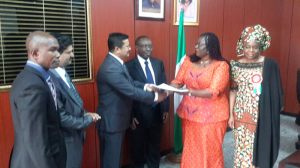
An agreement to this effect was signed recently in Abuja, the Federal Capital City, by the Minister of Lands, Housing & Urban Development, Akon Eyakenyi, and Anand Ramani of the Dubai-based Signature Value Homes Limited. Minister of State for the Federal Capital Territory (FCT), Jumoke Akinjide, witnessed the ceremony
The project will be implemented under the Public Private Partnership (PPP) arrangement with government providing land and the developers financing the development.
The estate, a mixed-use development, will be built on a 20 hectares (ha) free and unencumbered land situated at Gwagwalada in the FCT. It will feature one-, two- and three-bedroom apartments on four floors comprising approximately 1,672 dwellings.
Akinjide praised Eyakenyi for what she termed an “uncommon transformation” of the housing sector in the country. According to her, the FCT Ministry has confidence in the quality of houses being provided by the Housing Ministry in the light of “the ministry’s good work done in other projects”.
While thanking Akinjide for being part of the event, Eyakenyi remarked that the Housing Ministry is effectively utilising the lands allocated to it by FCT.
Signature Value Homes Limited is a mass housing project developer entity that specialises in providing holistic solutions for integrated community development, according to the firm. The company had presented a profile of successfully executed projects in India and sub-Sahara African countries. The company, which is also engaged in mass housing development with the Niger State Government, has technical and engineering partnership with Mahindra Consulting Engineers and construction partnership with Klassic International.
In November, the firm made a technical presentation to the Housing Ministry, which eventually gave the go-ahead for the project, in the belief that Signature Value Homes is technically capable and has the financial capacity to undertake the scheme.
Under the Housing Ministry’s PPP Unit – the vehicle through which it builds mass housing – government provides land and developers build according to agreed specifications.
How COP20 mobilised over 100,000 people, embraced sustainability
Peru, the bustling Peruvian capital city, received more than 14,000 visitors from abroad and nearly 80,000 citizens attended Voices for Climate in those 12 days
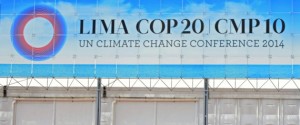
After two weeks of intense activity from December 1-12 2014, COP20 (20th Session of the Conference of the Parties to the United Nations Framework Convention on Climate Change) mobilised a large number of people gathered in Lima to be part of an international event that brings together representatives from governments, civil society, business and authorities from 195 countries.
“I congratulate and thank Peruvians and citizens from Lima because with their hospitality Peru has held the largest event of its history, successfully without incidents, making nearly 14,000 people, who have come from abroad, feel at home,” said the Ministry of Environment and President of the COP20, Manuel Pulgar-Vidal.
COP20 was held at the General Army Headquarters in a facility built for the occasion. This structure had more than 30 meeting rooms and two plenaries with capacity for 2,000 people. On the other hand, the Ministry of Environment promoted a space for participation called “Voices for Climate”. This was free and open to the public and it showcased the progress Peru has made in the country in five emblematic issues: Mountains and Water, Forests, Sustainable Cities, Renewable Energy and Oceans.
A city on the move
COP20 was able to mobilise and create awareness in citizens about the effects of climate change in the world, and especially in Peru. “Voices for Climate” received – in 12 days – over 80,000 visitors and the Indigenous Maloca more than 35,000. In addition, more than 400 conferences in which new research projects and initiatives were presented were organised. Personalities from different fields as Christiana Figueres, Rajendra Pachauri, Fabien Cousteau, Lucho Quequezana, Charly Alberti, among others, attended Voices for Climate.
COP20 also received seven presidents, among which were Evo Morales of Bolivia; Enrique Peña Nieto, of Mexico; Michelle Bachelet of Chile and Juan Manuel Santos of Colombia. It was also attended by the Secretary General of the United Nations, Ban Ki Moon; John Kerry, Secretary of State of the United States and Al Gore, former US Vice President and Nobel Peace Prize. During the full duration of the COP, over 140 press conferences were held and more than 900 journalists from around the world covered the international event, while 1,200 Peruvian volunteers participated in the conference, assisting national and international guests.
The thousands of attendees took daily buses from seven different points in the city to the venue on established routes and flexible hours. This was planned to avoid generating more traffic in the crowded city and to have a safe transportation system. On the other hand, the campaign Play Your Part, generated more than 330,000 citizens’ commitments nationwide and continues to work to raise awareness among citizens and businesses to fight climate change.
Sustainability at COP20
COP20 is the first event in Peru to separate the waste generated in five categories (organic, plastics, paper/cardboard, glass and general waste), announced the Organisation and Logistics committee for COP20. It will also be the first conference in Peru to measure (by means of independent verification/ validation) and offset its carbon footprint, via Verified Emission Reductions generated by a REDD+/ reforestation project in protected areas in Peru. Once the certifying organisation AENOR has verified the conformity of the process of calculating and offsetting of the emissions, its carbon offsetting certificate will be awarded to COP 20.
All cups used in the venue are biodegradable. In addition, the majority of plates and forks/ knives/ spoons are biodegradable and/or recyclable (all available stocks of biodegradable dishes in Peru have been depleted). The income from selling the recycled materials will be given to ANIQUEM, the Assistance Association for Burned Children. This organisation provides free physical and psychological rehabilitation to children and youth suffering from injuries related to burns as well as training for their families to provide home therapy.

